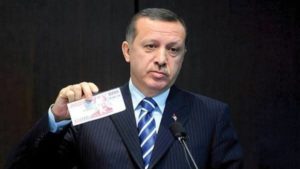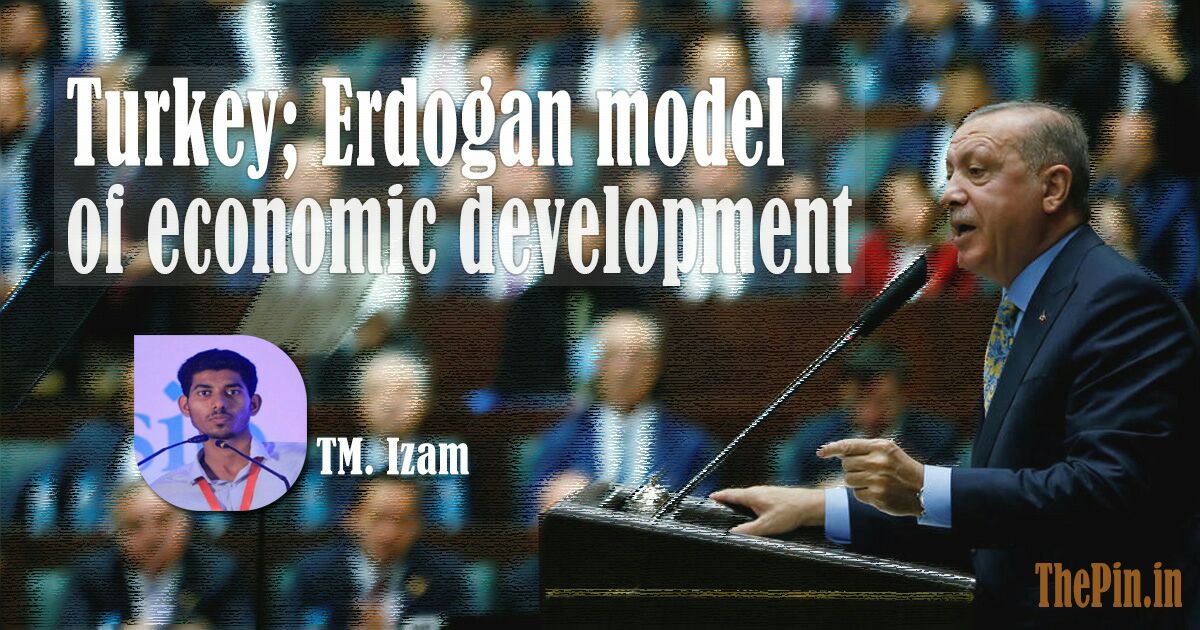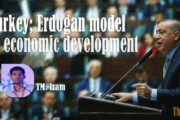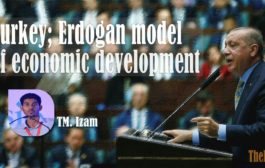Erdogan’s magical revolution had made advancement on the development of Turkey in nearly all fields. Of that, one of the important areas is the economy of Turkey. Erdogan enhanced it into an astonishing stage. At the time of Kamal Ataturk the economy of the country was in queue in front of the doors of European union with folded hands. The major reason behind the political support attained by AK Party in past elections was the economic reformation put forward in the country by Erdogan and his Party. Impacts on Turkey’s economical structure made by AK Party by its reign is beyond belief. It is crystal clear that the economic development initiated by AK Party helped them to achieve massive support of people in all the elections held after the devolution of the country after 2002.
Before the ascend of AK Party the country was crawling with crises such as huge price hike and lack of production in the country. That very economy of Turkey is now transformed into the world’s 17th strongest economical power in the world. The recent timeline of Turkey is an ideal example for how constant policy advancement activated the economy of the country.

In the beginning of 1980s Turgut Ozal, the then Prime Minister put forward some balancing economic strategies in practice. However the leaders came after Ozal failed to develop those strategies with far sight. This lead to high internal conflicts and economic crisis inside the country in 1990s. Turkey witnessed an internal attack from the military, strong attack from Kurd community of the country and also a destructing earthquake. This all lead the economy of the country to the brink of a deep pit. These problems started clearing out by the devolution of AK Party. The party was giving a visionary extension to the strategies of Turgant Ozal. They controlled price hike by giving the national currency Lira an independent exchange rate. And also by declining maximum expenses. The banking sector was reorganized and the union bank and other regulatory institutions were granted with more privileges. 90 percent of income tax was specifically used to repay the loans and interests to foreign banks. By 2014 Turkey cleared all their debts of IMF.
It is extraordinary that among all these strategic operations the government also has special concern even about the last citizen of the nation. While all these reformations the government was also very vigilant in developing the basic infrastructure of the country. In 2008, the world witnessed global financial crisis. In those times, Turkish economy was one of the unique economies which stood very powerfully. Big economies were in great difficulties at that time. This prompted global rating agencies to increase the rate of investments in Turkey and it brought attention of many MNCs to the country. Also the country had survived from the most complicated banking crisis in 2011. A powerful banking eco system was planned by the government after the crisis. While the country was in good economic situation Turkey started witnessing major political turbidity. Internal riots and sheltering refugees from Syria started challenging the country again. The country accommodated approximately 2.5 lakh migrants. But by 2019 the government has rescued the country from this ordeal as well.
T.M IZAM




